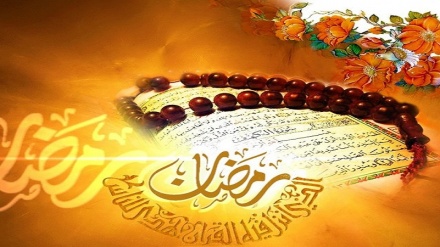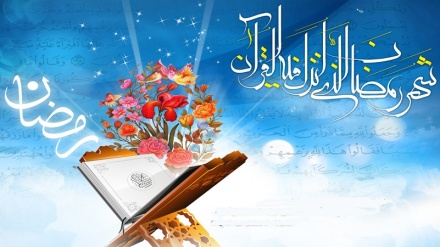Heavenly Call (10)
Welcome to the 10th episode of Heavenly Call on the occasion of the blessed fasting month of Ramadhan.
We start with the special supplication of the 10th day, please listen.
“O Allah, appoint me this day to be among those who put their trust in You; include me therein among those who are triumphant with You; and count me therein among those who are brought near to You, with Your kindness, O Goal of the Seekers.”
As a reminder, it was said that one of the important responsibilities of the faithful is to be fully prepared for obedience to God the Prophet and the divinely-designated leaders. This spiritual preparedness is not created by itself; rather it needs grounds. The key factor in this respect is abiding by servitude to God the Exalted. God says in ayah 77 of surah Hajj, "O you who have faith! Bow down and prostrate yourselves, and worship your Lord, and do good, so that you may be felicitous."
Servitude means full obeisance to the One and Only God. This state of the servant is manifested during the daily ritual prayers in the states of Roku' or genuflection and Sajda or prostration. The believer knows that he is a humble creature and has a Creator. Thus he neither haughty nor arrogant before God. This spirit of servitude delivers the individual from vanity and egotism so that he feels humble before the source of life. Hence, he bows down and prostrates as a sign of glorification of the grandeur of the Creator.
Then the holy Qur'an illustrates the path of those who believe in the Prophet in part of ayah 29 of surah Fat'h:
"You see them bowing and prostrating seeking Allah's grace and pleasure. Their mark is visible on their faces."
The holy Qur'an doesn’t mean that they are constantly in the state of bowing and prostration while they have ignored their social duties. Rather it means that, following the role model of the Prophet of God, the faithful are marching in the path of servitude and obeisance of God. The ayah stresses that the mark of servitude is visible in their face – especially forehead. By broadening the purport of the ayah, we can say that they are obedient to the Prophet in all of their deeds.
Dear listeners, those who feel that they are the servants of God will surely obey the instructions of Prophet Mohammad (blessings of God upon him and his progeny). In part of ayah 7 of surah Hashr, God addressing the faithful, says, "Take whatever the Prophet gives you and relinquish whatever he forbids you."
This trait will be embodied in the servant once he/she obeys the commands of God and the Prophet unconditionally. This way, servitude will be instilled in his/her spirit to the extent that he/she will feel as if there is no authority before the authority of the God and the Prophet. Ayah 36 of surah Ahzab stresses this point, saying:
"A faithful man or woman may not, when Allah and His Prophet have decided on a matter, have any option in their matter, and whoever disobeys Allah and His Prophet has certainly strayed into manifest error."
Thus, ruling out any option before God and the Prophet is a clear criterion for differentiation between the true believers and the hypocrites.
Now, one may ask, "Why should we worship God only?"
The answer is obvious. God is One and Only, without any partner and associates, which means worshipping anyone or any object besides the Almighty Creator, is polytheism and an unpardonable sin.
Several ayahs of the holy Qur’an, such as ayah 51 of surah Al-e Imran, ayah 36 of surah Maryam and ayah 64 of surah Zukhruf. Ayah 64 of surah Zukhruf, make it clear that only the Almighty Creator should be worshipped: "Indeed Allah is my Lord and your Lord; so worship Him. This is the straight path."
God has created man from naught. He made man His representative on earth and made him superior over all other creatures. Ayah 21 of surah Baqara reads, "O mankind! Worship your Lord, who created you and those who were before you so that you may be Godwary."
We pray to God to help us be real servants to Him, His Prophet and Infallible Imams of the Ahl al-Bayt. Amen!
RM/AS/SS


